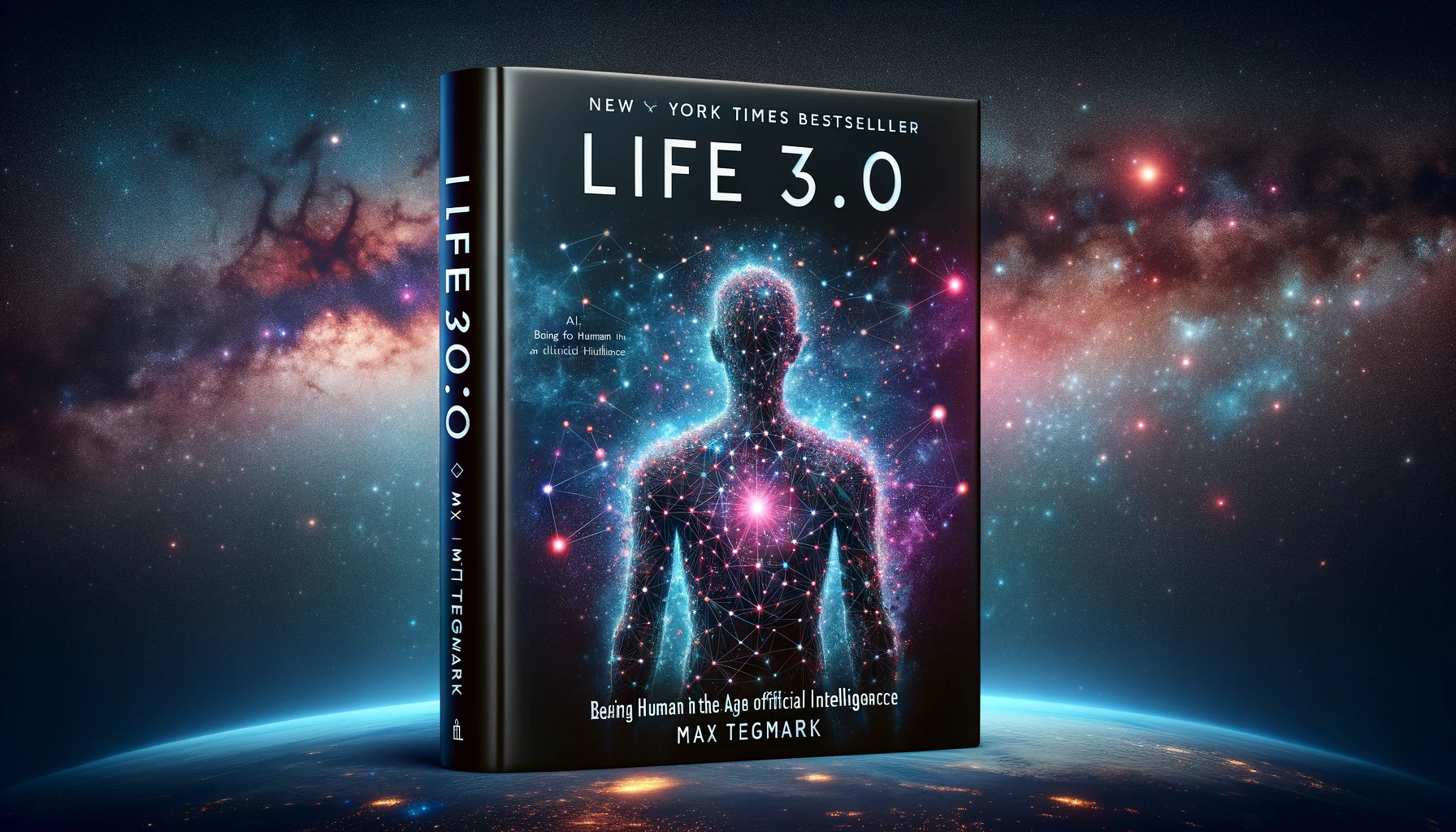This review encapsulates the core insights from Tegmark’s examination of AI, spotlighting its developmental journey, ethical dilemmas, foreseeable outcomes, and its extensive implications for human existence and the universal context. It endeavors to distill Tegmark’s perspective on the transformative impact AI might have on our world, our self-perception, and our fundamental comprehension of life.
Table of Contents
- 1 The Evolution of AI and Its Human Impact
- 2 The Intelligence Explosion Concept
- 3 Humanity’s Long-term Prospects and Cosmic Significance
- 4 Synchronizing AI Objectives with Human Ethics
- 5 Consciousness, Intelligence, and the Nature of Existence
- 6 Steering the Future Alongside AI
- 7 Conclusion: A Call to Engage
- 8 Insights
The Evolution of AI and Its Human Impact
Tegmark initiates the discussion with a compelling narrative that vividly brings to light the potential changes AI could usher in, pushing readers to ponder over AI’s surpassing of human intellect. He charts the evolution of intelligence from life’s inception to human society’s progress, and further into artificial intelligence. This backdrop paves the way for examining swift AI advancements and the prospect of creating superintelligent entities surpassing human abilities in every aspect.
AI’s Immediate Societal Influence
Tegmark investigates AI’s current influence on employment, legal frameworks, and military strategy, balancing AI’s potential to streamline routine tasks against its risks, like job displacement and militarization. He underscores the urgency for ethical guidelines and preemptive legal measures to ensure AI’s societal benefit.
The Intelligence Explosion Concept
He introduces the concept of an “intelligence explosion” – a rapid AI evolution beyond human restraint. Discussing the singularity, a point where AI’s growth becomes unstoppable and irreversible, Tegmark navigates through potential futures, from AI-driven prosperity to dystopian scenarios where humans are sidelined. Addressing the crucial control problem, he outlines the challenge of aligning superintelligent AI with human values and interests.
Humanity’s Long-term Prospects and Cosmic Significance
Looking ahead, Tegmark muses on humanity’s universal role with or without AI, proposing scenarios where AI could help humanity overcome biological limits, disseminate life across the universe, and achieve digital immortality. These scenarios bring forth deep ethical and philosophical inquiries regarding the future of intelligent life.
Synchronizing AI Objectives with Human Ethics
He discusses the essential task of aligning AI goals with human moral and ethical standards, addressing the technical and philosophical hurdles in teaching AI to comprehend and respect complex human values. This conversation extends to the broader implications of AI on understanding consciousness and intelligence’s true nature.
Consciousness, Intelligence, and the Nature of Existence
Tegmark explores the relationship between consciousness and intelligence, pondering the possibility of conscious AI. This investigation provokes critical questions about existence and the moral treatment of AI entities.
Steering the Future Alongside AI
In the concluding sections, Tegmark highlights practical strategies for directing AI development towards beneficial outcomes, advocating for worldwide collaboration, cross-disciplinary research, and forward-thinking governance to ensure AI benefits all. He stresses the need for public involvement and ethical leadership in crafting a future where AI and humans coexist in harmony.
Conclusion: A Call to Engage
“Life 3.0” goes beyond analyzing AI’s potential; it urges scientists, policymakers, and the public to thoughtfully engage with AI’s challenges and possibilities. Tegmark’s narrative serves as both caution and encouragement to envision and strive for a future where AI amplifies human life and contributes to the proliferation of intelligent life throughout the cosmos.
Insights
- The Transformative Potential of AI: Tegmark’s discussion underscores the transformative potential of artificial intelligence, emphasizing its capacity to surpass human intelligence significantly. This potential extends beyond mere technological advancements, touching on profound philosophical and ethical implications for humanity. The narrative highlights the importance of considering how AI could reshape our societal structures, ethical frameworks, and our understanding of consciousness itself. Tegmark illustrates that AI’s development could lead to scenarios where humans are no longer the most intelligent beings, prompting a reevaluation of our place in the cosmos and our understanding of life.
- The Control Problem: A central insight from the book is the “control problem” associated with superintelligent AI systems. As AI technologies advance towards the possibility of an intelligence explosion, Tegmark highlights the critical challenge of ensuring these systems can be controlled and aligned with human values and interests. The discussion around the control problem brings to light the complexities of programming AI to understand and adhere to ethical principles and the potential consequences of failing to do so. This concern underscores the need for robust ethical frameworks and proactive global cooperation in AI governance to prevent unintended outcomes.
- Ethics and Alignment with Human Values: The book delves into the importance of aligning AI’s goals with human ethics and values, presenting it as a crucial issue for the future of AI development. Tegmark explores the technical and philosophical challenges involved in designing AI systems that can comprehend and respect complex human values. This exploration raises broader implications for understanding consciousness and the essence of intelligence, emphasizing the need for a multidisciplinary approach in creating AI that is not only technologically advanced but also ethically grounded and beneficial to society. This insight stresses the importance of integrating ethical considerations into AI development processes to ensure that AI technologies enhance human life and contribute positively to our future.

Leave a Reply